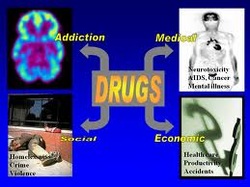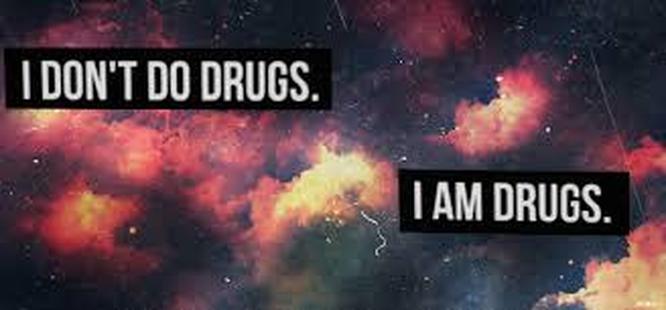 Drugs and Alcohol Abuse Florida
Drugs and Alcohol Abuse Florida This paper attempts to address whether the planned benefits of legalizing Marijuana outweigh the potential negative consequences. Factors that will be examined and are questions faced by staff of outpatient and inpatient Alcohol Rehab Center Florida and elsewhere, include the number of dependent users and how legalization will impact this number, treatment costs and there relation to the youth of our nation and suggestions and recommendations. A review of merely these factors demonstrates that the increase in revenue and cost-savings associated with decreased criminal activity outweighs health harms associated with marijuana usage.
If the analysis were to stop at that point, there would not be much to write about as the evidence is fairly straight forward; however, unknown and intangible costs such as the effect of legalization of marijuana on the youth of our country and the unknown but predicted increase in dependence may tip the scales in the other direction. Finally, this writer will draw broad conclusions and recommendations based upon the current literature and findings.
The document is organized into three parts
Marijuana is an addictive drug and people do experience dependence and withdrawal symptoms (Hall, 2003). Also, from 2002-2008, the average number of people in the United States that met DSM-IV criteria for abuse or dependence was 4.2 million people (Substance Abuse and Mental Health Services Administration, two thousand nine 2009). Finally, over 10% of lifetime users of marijuana have enough symptoms to qualify for the label of experiencing abuse or dependence (Substance Abuse and Mental Health Services Administration, 2009).
Although it is impossible to predict with certainty how much marijuana will cost if it is legalized, most of the literature estimates that the price will decrease anywhere from 30%-75% (Caulkins, 2010). Based on this fact, estimates for California indicate that the number of people who will be dependent on marijuana will increase by over 300,000 (Caulkins, 2010). Although these numbers are speculative and based upon theoretical, economic models, there is no doubt that legalization of marijuana will have an impact in reducing the price of the drug and an increase in those using the drug? Also, the fact that the price of marijuana will decrease, will allow individuals who previously could not afford to use the drug to have access.
As a direct result of more people having access to marijuana, an increase in dependence and the fact that marijuana has been scientifically shown to have negative effects on cognitive functioning, society will have to shoulder this burden. The negative effects (including memory loss, learning impairment and decreased motor coordination) last in excess of 30 days after the period of acute intoxication (Bolla, 2002). This means that people using marijuana will have a tendency to wrongly believe they are capable of performing tasks, such as driving a car, operating heavy equipments/machinery, caring for children or resolving work-related issues, when in fact they may be performing at an impaired range of functioning (Bolla, 2002).
Overall, legalization of marijuana will increase the number of people who are dependent on the substance and lead to an increase in usage. Additionally, beyond the tangible and statistical data that indicates the benefit outweighs the negative, several negative intangible and yet unmeasured factors seem to negate the benefit proposed by many people in favor of legalization.
Drug Treatment Effect
In 2009, the average cost of residential drug treatment in the United States was in excess of $5,000.00 (Substance Abuse and Mental Health Services Administration, 2009). Additionally, it is estimated that over 75% of individuals treated for marijuana as a primary dependency were under the age of 21 (Substance Abuse and Mental Health Services Administration, 2009). Also, in 2009, 61.5% of all individuals admitted for treatment were for individuals that were under the age of 21 and the taxpayers paid for 80% of these admissions.
From the statistics above and the previous section, it is this writers opinion that not only are the statistics staggering, the intangible costs on society and especially the youth outweighs any speculative benefit gleaned from legalizing marijuana. George John, CFO of Sober Living Outpatient, an outpatient drug treatment and drug rehab in Florida, states “Our society should be appalled at the billions of dollars being spent on lobbying for legalized marijuana (and other illicit drugs) when by legalizing marijuana, we are increasing the number of youth that will ultimately be affected and need treatment.” Additionally, this writer proposes that we take a fraction of the money spent on the lobby and invest those funds in treating and educating the youth of our country about the dangers and cognitive effects of abusing marijuana and other substances.
Moreover, the wasteful money spent on lobbying should be spent on inpatient and outpatient drug treatment Florida and rehab for those suffering from dependence. Below is a snapshot of the number of people treated, in the United States, for drug and alcohol abuse in 2007. One should pay close attention to the highlighted section “Marijuana/hashish” and the respective age at first use. Additionally, this category equates to over 15% of all treatment episodes and alarmingly is higher than admissions for “smoked cocaine” and “heroin”. Thus, the myth that marijuana is harmless is absolutely refuted by the statistics.
Broad recommendations and suggestions
As opposed to broad and sweeping legislation that allows for legalization of marijuana, this writer recommends the following:
If the analysis were to stop at that point, there would not be much to write about as the evidence is fairly straight forward; however, unknown and intangible costs such as the effect of legalization of marijuana on the youth of our country and the unknown but predicted increase in dependence may tip the scales in the other direction. Finally, this writer will draw broad conclusions and recommendations based upon the current literature and findings.
The document is organized into three parts
- How the legalization of marijuana and the resulting drop in price will effect use of marijuana and potential increase in dependent users in need of outpatient and inpatient drug treatment and drug and alcohol rehabilitation.
- How the legalization of marijuana and the resulting rise in consumption will impact national inpatient and outpatient drug treatment statistics based on reported government statistics.
- Broad recommendations and suggestions.
Marijuana is an addictive drug and people do experience dependence and withdrawal symptoms (Hall, 2003). Also, from 2002-2008, the average number of people in the United States that met DSM-IV criteria for abuse or dependence was 4.2 million people (Substance Abuse and Mental Health Services Administration, two thousand nine 2009). Finally, over 10% of lifetime users of marijuana have enough symptoms to qualify for the label of experiencing abuse or dependence (Substance Abuse and Mental Health Services Administration, 2009).
Although it is impossible to predict with certainty how much marijuana will cost if it is legalized, most of the literature estimates that the price will decrease anywhere from 30%-75% (Caulkins, 2010). Based on this fact, estimates for California indicate that the number of people who will be dependent on marijuana will increase by over 300,000 (Caulkins, 2010). Although these numbers are speculative and based upon theoretical, economic models, there is no doubt that legalization of marijuana will have an impact in reducing the price of the drug and an increase in those using the drug? Also, the fact that the price of marijuana will decrease, will allow individuals who previously could not afford to use the drug to have access.
As a direct result of more people having access to marijuana, an increase in dependence and the fact that marijuana has been scientifically shown to have negative effects on cognitive functioning, society will have to shoulder this burden. The negative effects (including memory loss, learning impairment and decreased motor coordination) last in excess of 30 days after the period of acute intoxication (Bolla, 2002). This means that people using marijuana will have a tendency to wrongly believe they are capable of performing tasks, such as driving a car, operating heavy equipments/machinery, caring for children or resolving work-related issues, when in fact they may be performing at an impaired range of functioning (Bolla, 2002).
Overall, legalization of marijuana will increase the number of people who are dependent on the substance and lead to an increase in usage. Additionally, beyond the tangible and statistical data that indicates the benefit outweighs the negative, several negative intangible and yet unmeasured factors seem to negate the benefit proposed by many people in favor of legalization.
Drug Treatment Effect
In 2009, the average cost of residential drug treatment in the United States was in excess of $5,000.00 (Substance Abuse and Mental Health Services Administration, 2009). Additionally, it is estimated that over 75% of individuals treated for marijuana as a primary dependency were under the age of 21 (Substance Abuse and Mental Health Services Administration, 2009). Also, in 2009, 61.5% of all individuals admitted for treatment were for individuals that were under the age of 21 and the taxpayers paid for 80% of these admissions.
From the statistics above and the previous section, it is this writers opinion that not only are the statistics staggering, the intangible costs on society and especially the youth outweighs any speculative benefit gleaned from legalizing marijuana. George John, CFO of Sober Living Outpatient, an outpatient drug treatment and drug rehab in Florida, states “Our society should be appalled at the billions of dollars being spent on lobbying for legalized marijuana (and other illicit drugs) when by legalizing marijuana, we are increasing the number of youth that will ultimately be affected and need treatment.” Additionally, this writer proposes that we take a fraction of the money spent on the lobby and invest those funds in treating and educating the youth of our country about the dangers and cognitive effects of abusing marijuana and other substances.
Moreover, the wasteful money spent on lobbying should be spent on inpatient and outpatient drug treatment Florida and rehab for those suffering from dependence. Below is a snapshot of the number of people treated, in the United States, for drug and alcohol abuse in 2007. One should pay close attention to the highlighted section “Marijuana/hashish” and the respective age at first use. Additionally, this category equates to over 15% of all treatment episodes and alarmingly is higher than admissions for “smoked cocaine” and “heroin”. Thus, the myth that marijuana is harmless is absolutely refuted by the statistics.
Broad recommendations and suggestions
As opposed to broad and sweeping legislation that allows for legalization of marijuana, this writer recommends the following:
- Early education, continuing into college that addresses the scientifically accurate information regarding the dangers and effects of marijuana and the disease (as indicated by the DSM IV) of marijuana abuse and dependence
- As opposed to legalization, the government should alter the criminality of marijuana abuse and dependence offenses (where others in society are not harmed, i.e., DUI) and offer treatment as opposed to incarceration
- Controlled and evidenced-based research as to the positive, medical research and uses of marijuana and its derivatives should continue; however, legalization of marijuana in smoked form is no different, from a health perspective, as smoking cigarettes.


 RSS Feed
RSS Feed